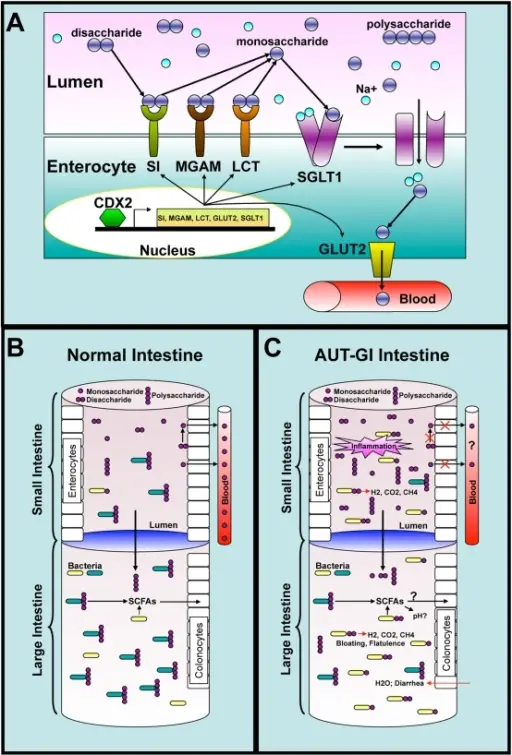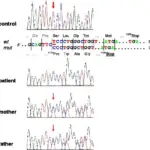Disaccharidase deficiency involves decreased hydrolysis of the disaccharides double-sugars by the disaccharidase enzymes lactase; maltase-glucoamylase; sucrase-isomaltase; palatinase and trehalase.
What is the Pathology of Disaccharidase Deficiency?
The pathology of disaccharidase deficiency is:
-Etiology: The cause of disaccharidase deficiency is autoimmune disorder that is triggered by hypersensitivity to ingested gliadins from wheat and other cereals, due to genetic variations.
-Genes involved: Unknown.
-Pathogenesis: The sequence of events that lead to disaccharidase deficiency are: A deficiency of an intestinal disaccharidase prevents hydrolysis of ingested substrate, a disaccharide. The osmotic load of the unabsorbed disaccharide causes secretion of fluid and electrolytes until osmotic equilibrium is reached. Dilation of the intestine caused by the osmosis induces an acceleration of small intestinal transit, which increases the degree of maldigestion.
-Histology: The histology associated with disaccharidase deficiency shows reactive epithelial changes in distal end of small intestine.
How does Disaccharidase Deficiency Present?
Patients with disaccharidase deficiency typically in all genders present at any age. The symptoms, features, and clinical findings associated with disaccharidase deficiency include: abdominal pain, bloating, and flatulence. A less common but still frequent symptom is diarrhea.
How is Disaccharidase Deficiency Diagnosed?
Disaccharidase deficiency is diagnosed by biopsies during upper endoscopy, direct assessment of enzyme activity spectrophotometry, fluorescence, and radiolabeling.
How is Disaccharidase Deficiency Treated?
Disaccharidase deficiency is treated by complete dietary elimination of the symptom causing disaccharidase is curative, enzyme supplementation for specific enzyme.
What is the Prognosis of Disaccharidase Deficiency?
The prognosis of disaccharidase deficiency is good. Most patients have a considerable improvement in signs and symptoms with dietary modification alone.



